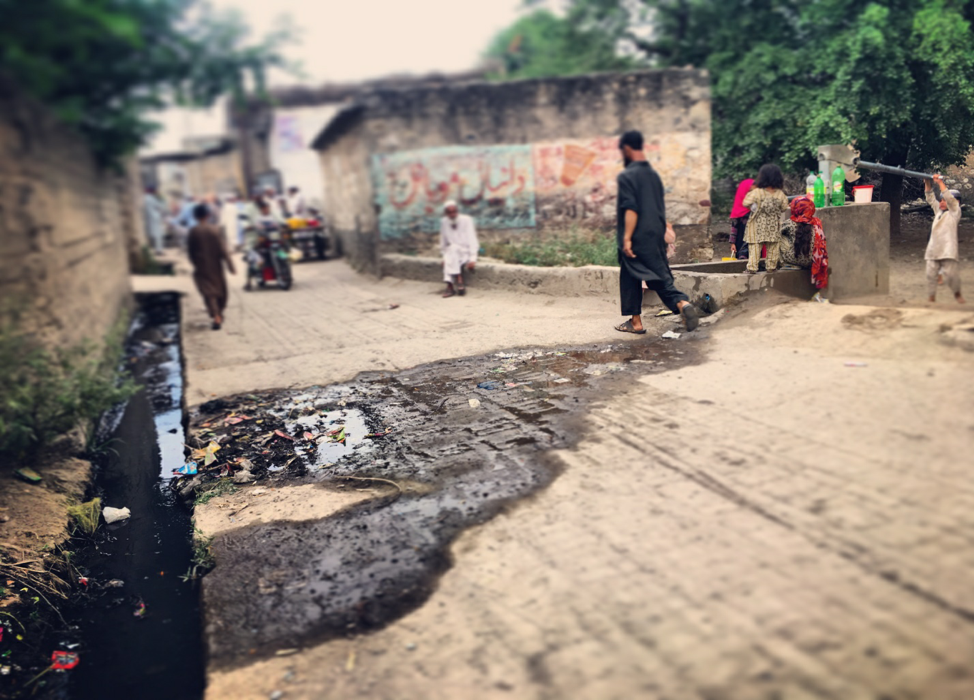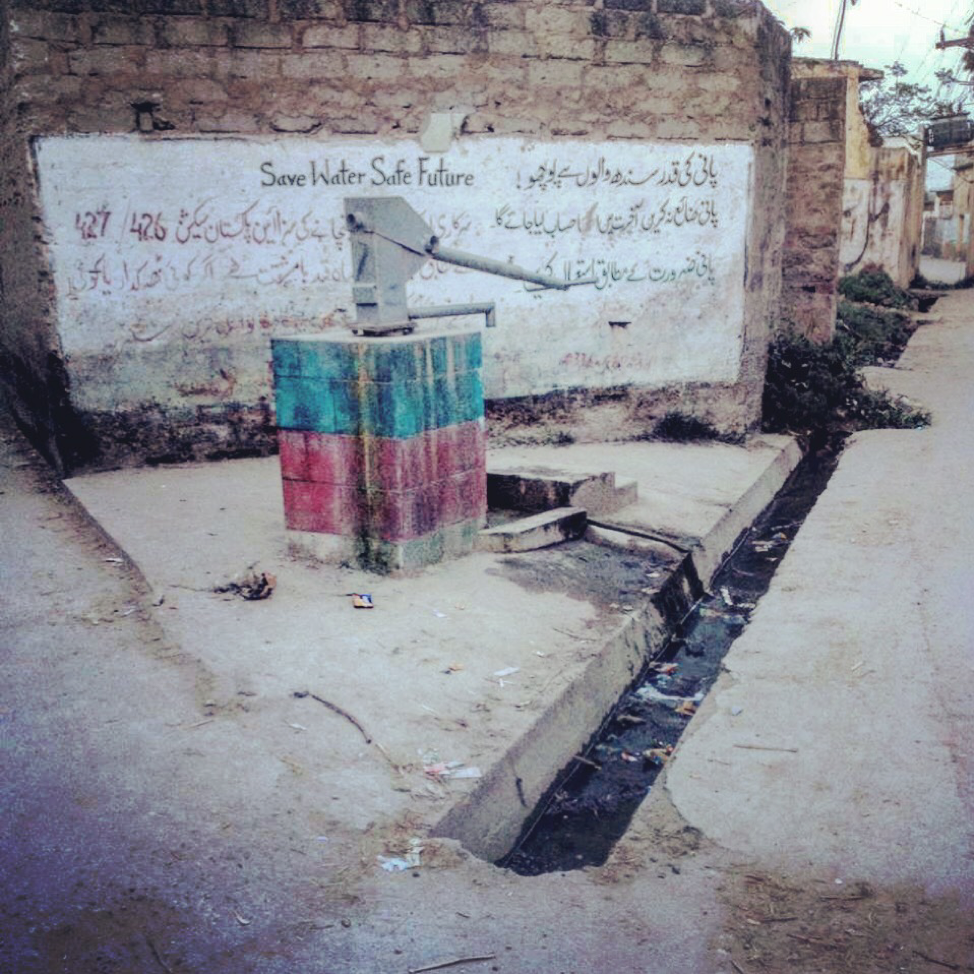In response to my post last week, Danial Khan (from Zarobi village, near Swabi city, KPK province, Pakistan) sent the following write up “to discuss what’s going on in my village and the water issues our rural community is about to face. It’s worse than I thought. I was born and raised in small rural community. Throughout my childhood there weren’t serious water issues, but things are now changing so rapidly…” Danial is working on his master’s degree in environmental economics.
Introduction
The following project will look at some of the issues about bore wells and the environmental and geological impact that these have on local towns and villages.
What is a bore well?

A deep, narrow well for water that is drilled into the ground and has a pipe fitted as a casing in the upper part of the borehole. This is typically equipped with a pump to draw water to the surface. Water belonging to a bore well used to be considered purer and cleaner but this was found to no longer be the case if built on areas that they are not supposed to be built on.
Difference between a bore well and a well
A borehole is usually drilled by machinery and is relatively small in diameter. In contrast, a well is usually sunk by hand and is relatively larger in diameter.
Environment and geological disadvantages
Throughout my research, I have come across the following:
- There are too many bore wells being constructed throughout our village. It seems to be commonplace in most households.
- Since they are costly as compared to normal wells, a house that is not as affluent or are earning under certain thresholds are unable to afford one.
- There are too many bore wells built for public and personal use, and as a result, the water level of normal wells have decreased excessively which is major problem faced by those who are unable to afford a bore well. This decrease in water levels has left many people without water.
- Construction of bore wells leads to a lot of noise pollution which can lead to a lot of disruption to locals.
- Bore wells are being built in unsuitable places therefore causing the water wastage. For example, many of the bore wells are built on the edge of dirty open sewer lines and the people using the water get diseases because the water is contaminated.
- The sewer lines contain all kinds of diseases because not only the drain water comes to it but also the wastes from toilets from many homes goes directly to the sewer lines, which goes unnoticed.
- Contaminated water can cause many types of diseases, including cholera, Guinea worm disease, typhoid, and dysentery. Water-related diseases cause 3.4 million deaths each year.
- Since the availability of water is scarce in summer many people head towards the bore wells built near sewer line in their neighborhood to get water to drink.
Political Stance
- Political parties are building bore wells just to put their names on it and make themselves look good and give the impression that they’ve done something for the sake of poor people, and more importantly for votes without any regard for consequences
- Bore wells are commonly placed in the center of sewer lines, which shows that they don’t care about the people who are going to drink from the public bore wells.
- It is difficult to make sense of the thoughts locals have with regard to these issues and contamination as the majority of people living here are uneducated and not affluent.
Below are examples of bore well that I came across during my research:
Although the wall reads “save water safe future,” I find it becomes increasingly hard to imagine a future with water quality such as the one shown above. As seen here, the main sewer line of the village is so close to this bore well, also causing water pollution for the passing by people:

Solutions
- Bore wells should be built on clean ground away from sewer lines.
- People should not make garbage dumps near drinking water.
- The number of bore wells should be reduced significantly, and government should take action against vote grabbers who are building these bore wells in inadequate places.
- People with no access to the bore wells in the village should have no problems when the water level decreases naturally or the number of wells increase.
- Most importantly it’s upon us to raise awareness against such harmful activities that go unchecked and the common problems that exist.


Just to add on. I grew up with a bore well in my maternal grandparents home in New Delhi. That was one of the highlights of every summer vacation to be able to take a bath and actually hang onto the bar of the borepump or handpump as its colloquially called in northern India to pump water out from the earth. I took my toddler to our local botanical garden last week in NYC. They have a functioning borewell in one the exhibits in the childrens’ discovery garden. All the childhood memories came flooding back. Thank you Danial Khan and you for sharing this information.